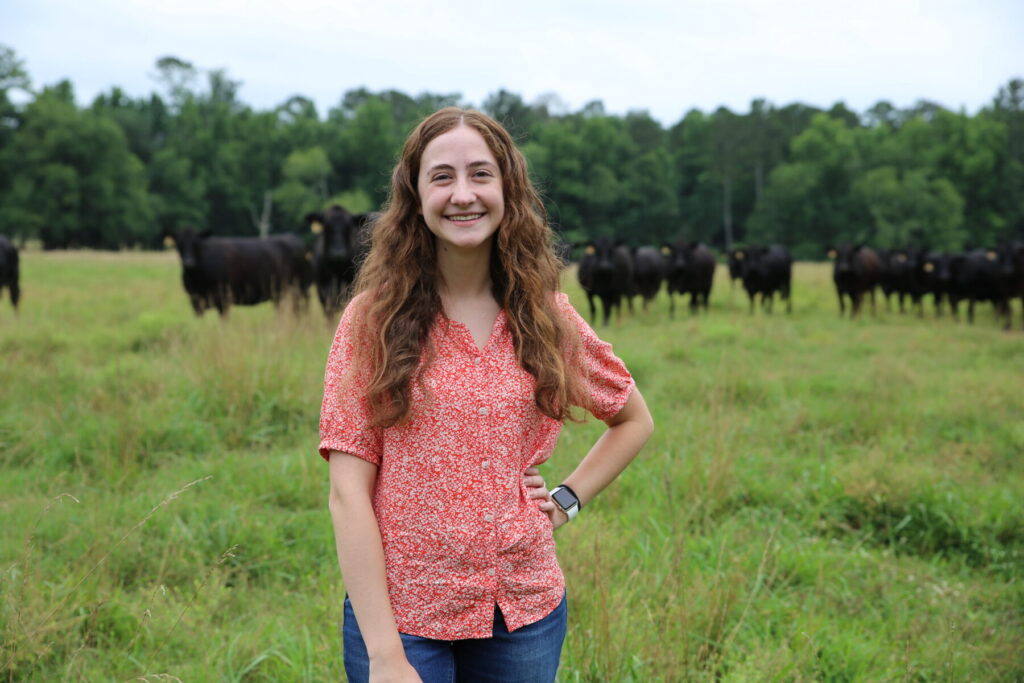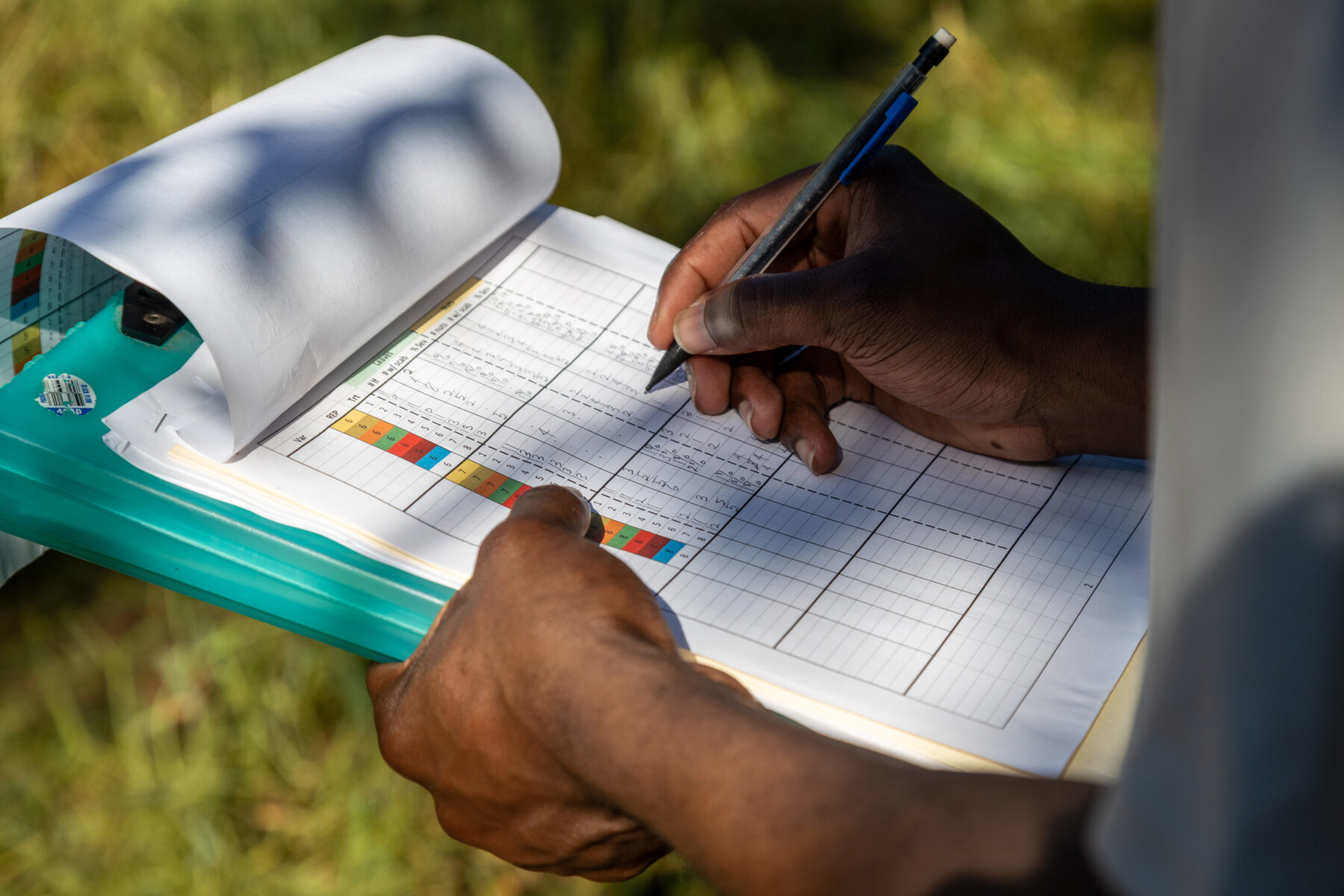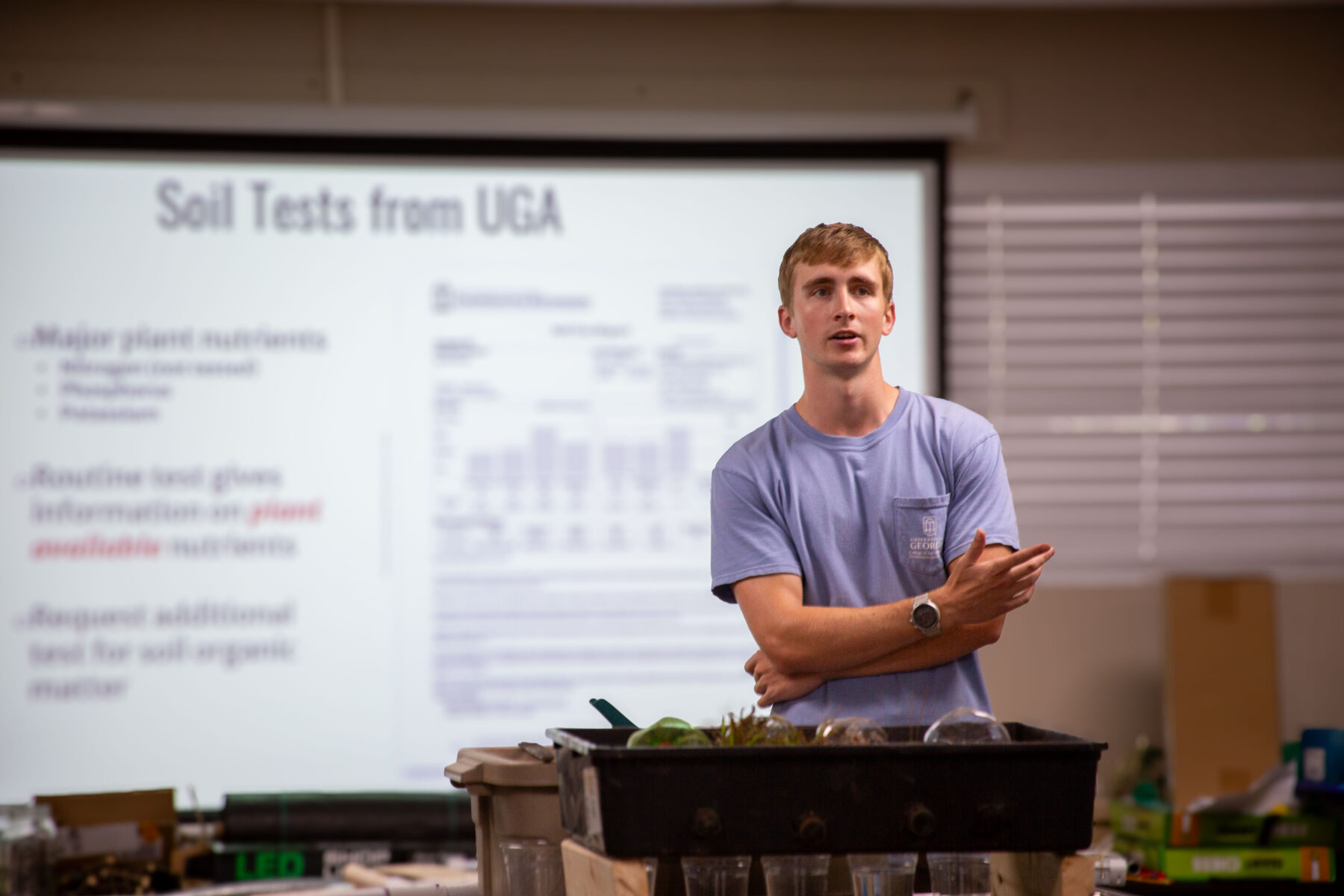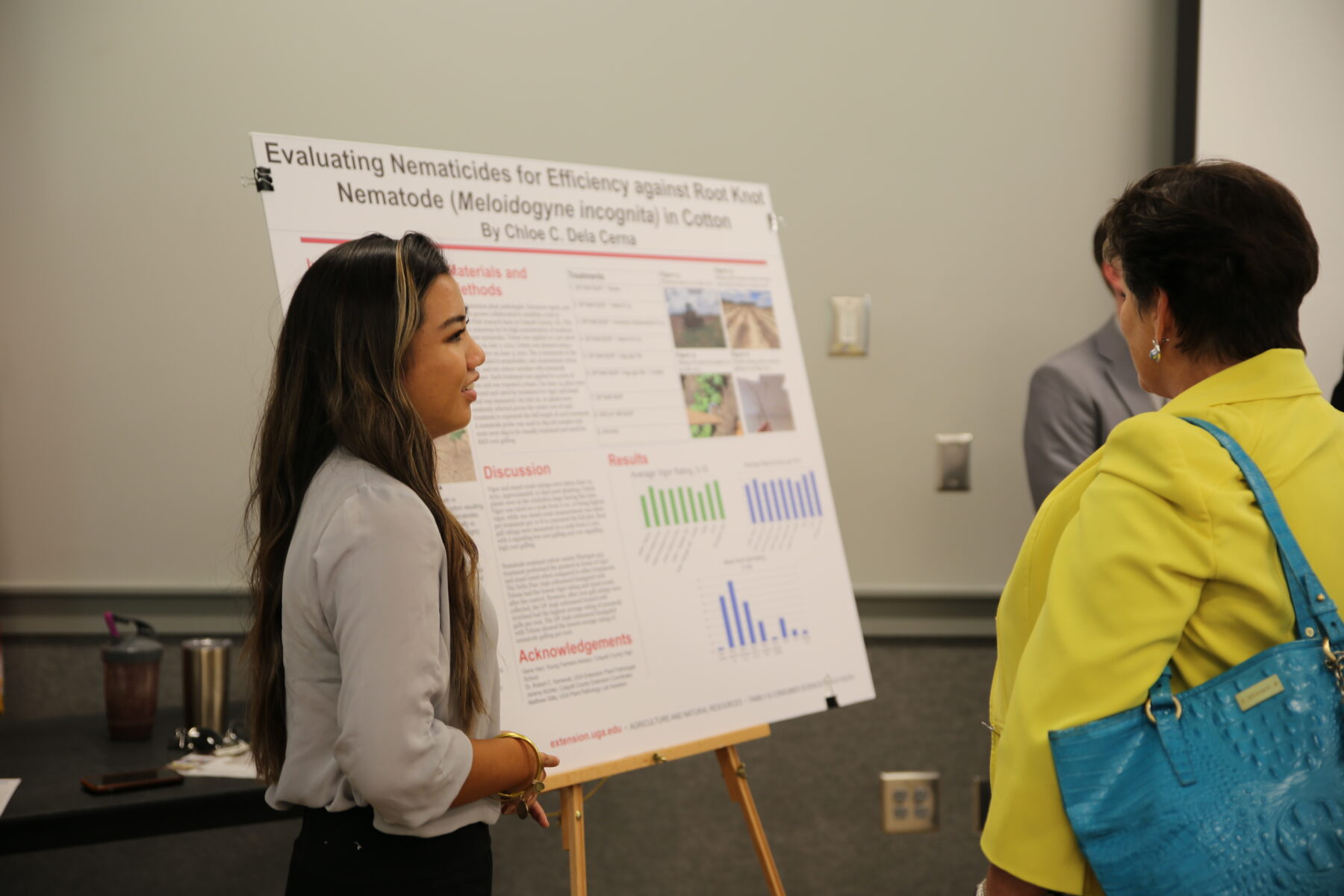
Program history
UGA Cooperative Extension, as part of the university’s land-grant mission of public outreach, formally launched a paid internship program in 2007 to involve college students in community education and service. The program has expanded over the years and now offers opportunities in all 159 counties as well as at the district and state level. On average it enrolls 23 students across the state. We are excited to see so many students get real-world Extension experience and have seen the program do a phenomenal job connecting college to career for future Extension professionals.
Goals and mission
Mission:
Educate and connect students to career opportunities in Extension.
Goals:
Give students hands-on leadership experience, foster community outreach skills, and coach students through the process to complete a meaningful project that helps the county or district they are serving.
These mission and goal statements embody UGA Extension’s commitment to translate research into community impact and develop the next generation of Extension agents. Interns are placed across Extension’s major program areas – Agriculture and Natural Resources (ANR), Family and Consumer Sciences (FACS), and 4‑H youth development – where they apply classroom knowledge to real local issues. By working alongside experienced agents, interns gain insight into Extension careers and begin building professional networks in the field.
Program structure
These are paid internships that run for one semester (during the summer term) in county Extension offices throughout Georgia. Interns are matched with a local County Extension agent in their preferred region, if possible, ensuring close mentorship on real community projects. These positions are full-time (often 40 hours/week). Students from any accredited university may apply, and many earn college credit for their work.

Field and office experience: Interns experience the daily life of a county agent, assisting with routine Extension work. For example, one county internship had interns assist in on-farm research projects, plan community education programs, and collect soil and hay samples alongside agents. These hands-on duties let students apply academic concepts to real community needs.

Community outreach programs: Interns learn to identify local challenges and develop educational programs to address them. They may design and deliver workshops (on topics like nutrition, gardening, or financial literacy) or conduct surveys to guide Extension services.

Independent research project: Each intern carries out a capstone project on a community issue. This might be a laboratory or field research study or a program evaluation. Interns usually present their findings or deliverables to Extension supervisors at the end of the term and participate in a poster presentation. Examples of past research projects include:
- Helping maintain an aquaponics greenhouse system (monitoring fish and plant growth under a controlled environment) as part of a local sustainability initiative
- Leading a 4‑H “Science Chef” workshop, teaching schoolchildren cooking and nutrition concepts.
Who can apply?
Minimum requirements:
- Enrolled (or the semester immediately following graduation) as an undergraduate or graduate student in a degree program that would qualify the participant for employment as an Extension agent.
- Interested in pursuing a career in Extension.
Please get in touch with the Office of the Associate Dean for Extension with any questions at caesext@uga.edu or 706-542-3824.